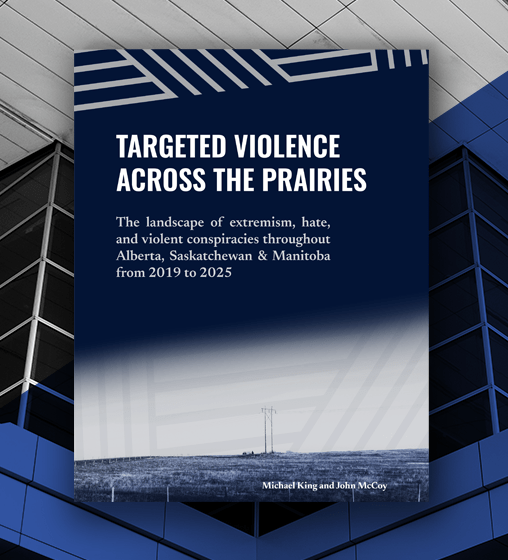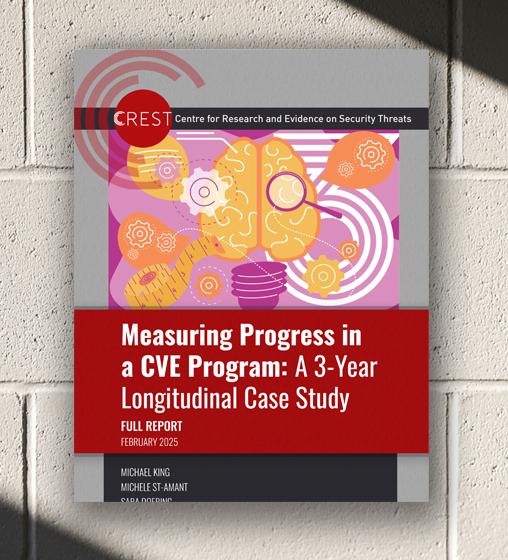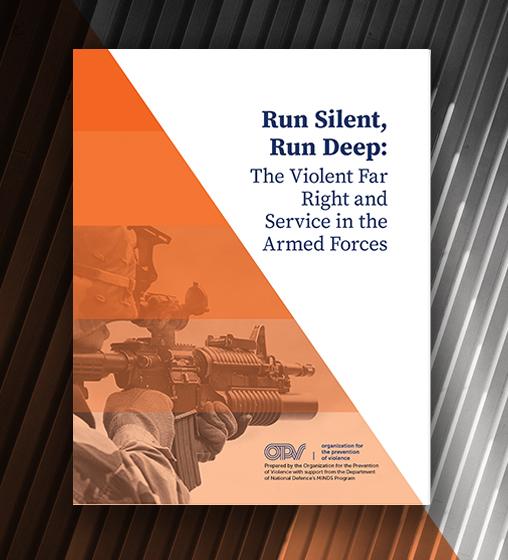Our executive director, John McCoy, talks about the alarming rate at which hate is growing in our province.
Original Article
Published by Postmedia News on August 18, 2023.
Hate in Alberta is growing at a startling rate. According to data from Statistics Canada, in 2020 the province recorded the highest year-over-year increase in reported hate crimes, 40 per cent from 2019 to 2020.
Nationally, the rate increased by 72 per cent during this same period and a further 27 per cent from 2020 to 2021. Community organizations, police, and policy-makers are left asking what is driving this trend and what can be done to address it.
In 2022, we at the Organization for the Prevention of Violence set out to measure hate in Alberta and identify some effective means for prevention. We surveyed more than 1,300 Albertans and interviewed 78 community leaders. We asked study participants to share any experience of hate, regardless if it met the police threshold of a crime, so long as it was aimed at “individuals or groups based on their ethnicity, religion, culture, sex, sexual orientation, gender and gender identity, or disability.” This approach captured a far broader set of experiences that go beyond hate crimes reported to police.
Consistent with Statistics Canada data and some of the trends in media over the past three years in Alberta, such as the rash of violent assaults targeting Black Muslim women in Edmonton in 2020 and violent attacks on unhoused individuals in downtown Calgary in 2022, our study shows that Black, Indigenous and Middle Eastern communities are most subject to violent acts of hate in Alberta.
Concerningly, we found more than a third of Albertans (35 per cent of the general population) reported some kind of experience with hate. The most common of these experiences were in-person slurs, followed by online hate. Unsurprisingly, these experiences were most common among Albertans who are a visible minority, of a religious minority community, or identify as LGBTQ2+.
However, an increasing number of Albertans who do not identify with these minority groups also reported experiencing hate. In this sense, experiences with hate seem to be contagious in Alberta, crossing racial and ethnic barriers and impacting a broader proportion of the population.
Confirming previous studies, our surveys and interviews also showed that some communities experience significant barriers when it comes to reporting instances of hate to authorities. This reality is particularly acute among urban and rural Indigenous populations and Black communities. Some victims of hate simply don’t feel comfortable reporting their experiences to police, don’t feel like they will be believed, or don’t believe they will find justice by coming forward. In total, 82 per cent of Indigenous survey respondents identified a lack of trust as a barrier to reporting hate incidents to police.
As with other social phenomena, the causes of these trends can be complex. Worsening social polarization and division, a deterioration in community safety, the impact of social media, and international conflicts can all play a role in influencing trends related to hate crimes.
Solutions, like causes, can be equally difficult to identify, although education was commonly recommended among our survey respondents. Teaching students in public schools about hate and its impacts makes sense, however; so, too, does encouraging positive emotions like empathy and compassion which run counter to hate.
We also need to encourage those who experience hate crimes to come forward, report their experiences to police and community organizations, and access victims’ supports. Targeted awareness efforts, led and delivered by community organizations to Black, Indigenous, and religious minority communities is a logical first step in measuring and addressing the impacts of hate. Awareness should focus on practical information on what hate crimes are in Canada, how to report them, and what to expect after they are reported.
Finally, we need a more standardized approach to investigations of hate crimes in municipalities and rural areas and a judicial system that is more attuned to the significant and detrimental traumatic impacts of hate on victims. Following up on last summer’s updates to guidelines on hate crimes for Crown prosecutors, the province should look to improve how victim and community impact statements are considered by the courts.
As an increasingly diverse province, we need to take hate seriously and look to positive solutions that encourage a more cohesive and inclusive society. The solutions to this problem, and similar social problems, rest in our ability to take an approach where government and civil society work collaboratively to reduce the impact of hate in Alberta and Canada.
John McCoy, PhD, is executive director, Organization for the Prevention of Violence.



